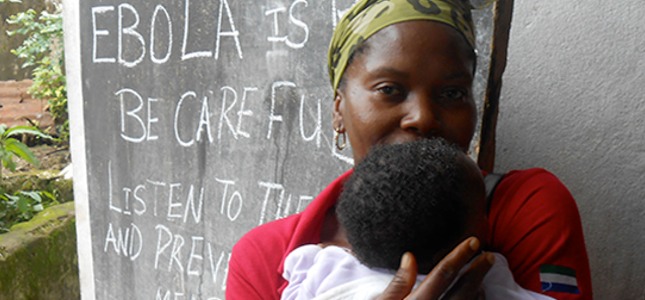
The outbreak itself was reported as far back as March 2014, but the opinion on the ground is that western governments like the US and UK have taken nearly seven months to respond in a way that could improve the situation. Only now, following the discovery of the first cases of Ebola in both countries, has the support started to mobilise substatially it would appear, which has contributed to the potential growth patterns of new cases that WHO are projecting.
These took an alarming rise recently, with the World Health Organisation warning that the number of new cases being discovered could rise to 10,000 per week if we don’t take more action to contain it fast. At the moment there have been around 9,000 reported incidents in total, but with each person with the virus going on to infect a further two people in Western Africa it’s easy to see why the projections are spiralling upwards.
The outbreak that has taken hold in Liberia, Sierra Leone and Guinea has gone on to become the single biggest instance of the disease since it was first discovered in 1976 and the numbers don’t look like they’ll be reducing any time soon. Conditions and burial practices in the country have led to the massive rise in the number of cases reported and this in turn has led to the small number of reported instances of the disease in the UK, US, Spain, France, Norway, Germany and Spain.
However, the reality for western countries is that despite the serious nature of the impact of the outbreak in western Africa, the number of reported cases outside of the three main countries affected is very low. In Africa itself, the biggest number of cases outside the three main countries mentioned above is Nigeria, and it’s reported eight deaths in total, which pales in comparison to the much higher combined mortality figure for Guinea, Liberia and Sierra Leone.
In the west, the spread is even lower with just eight cases in total discovered in the US, with one death and four people still in treatment, while the remaining three people have now recovered. In the UK there has been just one reported case of Ebola and it has now been confirmed to be a recovery also, so it’s clear that at this time the disease isn’t really taking hold outside of the three countries in Western Africa.
The World Health Organisation has also made it clear that the possibility of an outbreak of the disease in the west is unlikely and President Obama had a similar message this week, saying that the risk of Americans getting the virus is extremely low. Christopher Dye, WHO director of strategy, said the main reason for this is the strength of our health systems, which will make it hard for virus to take hold in any kind of serious way.
The reality is that Ebola isn’t necessarily a rapidly spreading disease, despite the incredible pace of the current crisis, so the potential of it affecting large volumes of people in western countries is very low. It isn’t airborne and can only be contracted by coming into contact with contaminated bodily fluids, with perhaps the biggest risk to the spread of the disease being getting sneezed on by someone who has been infected, but even with that the advanced health care in the west makes an outbreak beyond Africa a very unlikely possibility.
That’s not to say that western governments consider themselves to be without risk, otherwise they wouldn’t be mobilising increasingly as the Ebola crisis develops. Being confident about the situation as things stands is one thing, but will the same reassurances about the low risk of the virus spreading further be made if the number of new cases per week do increase to the 10,000 mark that WHO has warned about.
The move by governments in response to the escalation of the situation hasn’t necessarily been insubstantial as such, but it hasn’t come quickly enough and with enough weight behind it to stop the virus in its tracks. Instead the number of new cases continue to grow, despite the hundreds of millions of dollars that have already been contributed by the likes of the US, UK, France, China and Japan. The question is whether or not the outbreak could have been contained if more had been done earlier on in its discovery, instead of waiting for it to have a direct impact before taking significant action.
If you’re looking for your own way to contribute to the efforts to stop the virus from continuing to destroy the lives of families and children in Western Africa, you can donate through the Save The Children’s Ebola campaign, as the organisation continues to do all that is can to stop the spread of the disease and bring it under control through mass prevention and awareness campaigns. They’ve also set up a number of health centres where sufferers can be isolated and treated with the help of doctors like Louisa Baxter who commented on BBC Radio 4 that, ‘Unless we get hold of this we will face a situation the likes of which we’ve never seen before’.


